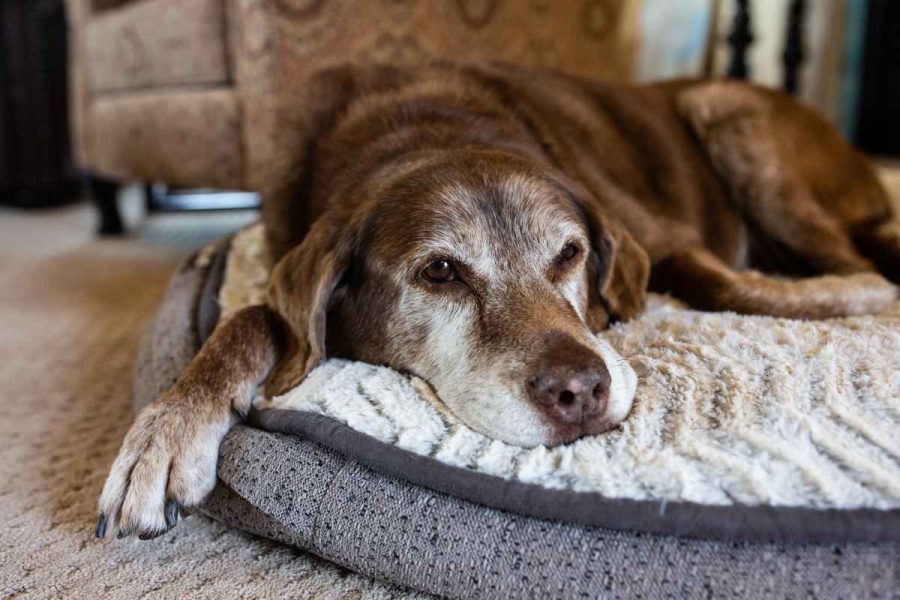If your dog is getting older and begins to show changes in behavior, seems disoriented and confused, they may unfortunately be suffering from dementia. How to deal with dementia in dogs, how to diagnose the dysfunction and how to prevent it?
What is dementia in dogs?
What is dementia in dogs? It is a cognitive dysfunction, a disorder that appears to have similar effects to Alzheimer’s. It is a condition that is linked to the ageing of the brain, and which causes dogs to change their behavior. It affects dogs over years old and affects memory, learning and the ability to understand. The diagnosis of dementia in dogs must be made by a veterinarian who will also perform the necessary tests to rule out other diseases.

Dementia in dogs cannot be cured, but it can be prevented to some extent through good nutrition and the right stimulation throughout the dog’s life, not forgetting the importance of proper socialization with other dogs and people. The precise cause of dementia in dogs is currently unknown, but the disease may be associated withphysical and chemical changes in the brain that are caused by the ageing process, although genetic factors or other diseases such as brain cancer may also play a role.
Dementia dogs, symptoms
What are the symptoms of dementia dogs? The symptoms of dementia are numerous but can vary in severity and even worsen with age. Among the most common symptoms are disorientation and confusion even in familiar surroundings, anxiety and irritability, but also wandering aimlessly or staring at walls for no reason and no longer even answering to their name. The dog’s desire to play and appetite decrease, but they also show alterations in their rhythms and routine, as well as slowness in learning new tasks.
